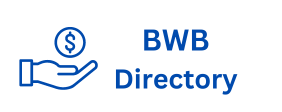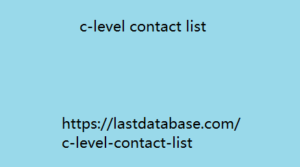You’ve heard people use that term to describe someone, but what is a project manager? While the name implies that the role involves managing a project, there are a lot of roles a manager plays to help progress from idea to execution.
On this page, we’ll cover everything you need to know about management, including:
What is a project manager?
A manager plans, organizes, and executes for a team. A person in this role will lead these while considering aspects like budget constraints, schedules, and resources. When someone is in a manager role, they will balance multiple responsibilities through the duration of and serve as the go-to person for anyone involved in the .
What does a project manager do?
With the help of a C-level contact list, firms c-level contact list can reach decision-makers directly and deliver customized, high-level information. Companies can foster important connections, promote corporate growth, and obtain important alliances by concentrating on their strategic needs and difficulties. Executive marketing success and collaborative impact depend on having a current, up-to-date list of C-level contacts.
Now that we answered, “what is a project manager,” you may be wondering, “what does a project manager do?” Project managers wear multiple hats and often have numerous responsibilities during the duration of a .
Some manager responsibilities include:Let’s dive into these responsibilities more:
Managing budgets
So, what is a PM? A PM is a budget manager. Every a company has and wants to complete needs funding. Someone needs to manage that funding. A project manager will manage the budget to ensure the funds go where they are needed.
Project managers will also handle asking for more funds for projects if needed.
Communicating with stakeholders
A key component of project management is communicating with stakeholders. When a team works on a project for a company, there are people, like the CEO, interested in the progress, launch, and performance of projects. Additionally, if a team works on a project for a client, the client is an important stakeholder that wants to know the progress of their project.
Instead of these stakeholders trying to communicate with multiple team members, they have a go-to person they can contact with questions or concerns. The project manager serves as the person of contact that communicates all information about the project and keeps stakeholders informed.
Setting project goals
So, what does a project manager do? One of the tasks project managers handle is setting goals for projects. Goals help keep teams motivated and focused on what they need to achieve for a project.
While stakeholders will have larger project goals in mind, the project manager will set smaller milestone goals for their team. Project managers know their team and its capabilities, so they can set SMART goals that work. SMART goals are goals that are:
Setting these relevant and reachable goals is a key component of management success.
Managing a team
One of the biggest manager responsibilities is managing a team. managers handle every member of their team and oversee the tasks they complete. They are tasked with providing additional support when needed and addressing any questions or concerns.
Someone in the manager role will also be responsible for holding team meetings to have team members share progress and updates.
Setting a schedule and keeping team members on that schedule
One of the answers to the question, “What is a manager?” is a that they’re a scheduler. A management leader must create a schedule for completing the major tasks of a project. While the company will have an overall deadline for the , the PM must set a schedule with multiple deadlines to ensure their team completes the on time.
Part of the manager’s responsibilities is setting both team and individual deadlines for team members based on their roles. Setting these multiple types of deadlines holds individual team members accountable, while also progressing the forward. Many companies will provide managers with software to help them manage their team’s tasks and schedule.
Trello homepage
Documenting project progress, hurdles, and issues
One of the most time-consuming, albeit morocco whatsapp number database important, manager responsibilities is documenting progress and problems. It’s natural that, as a progresses, people fall behind schedule or the team runs into a snag during the process. The important part is that it’s documented and communicated to the stakeholders.
An updated email for a project
The person in themanager role will keep track of the progress and note any issues or hurdles. For some of these issues, the PM may provide a solution to help the team keep moving on the . If not, the manager can contact stakeholders to help troubleshoot the issue for their team.
Keeping documented progress is important for keeping the stakeholders informed of progress, but also for helping teams learn what they could do differently or how they can better plan in the future.
Review and release the final product
The last of the project manager responsibilities bjb directory we’ll cover is reviewing and releasing the final product. Whatever the final product may be, the PM will review it to ensure that it’s what the stakeholders want and that it works as intended.
When the project is complete, the t manager will present the final product to the stakeholders. The project manager will also oversee completing any paperwork to hand off the final product, if needed.
4 key skills to be successful in the project manager role
Now that we answered, “what is a PM?” and “what does a manager do,” it’s time to look at the important qualities of a PM. To be successful in management, a manager needs to have these four skills:
1. Organization
When looking at the manager’s responsibilities, you’ll find there’s a lot for a PM to juggle. As a result, successful managers have great organizational skills. PMs need to stay organized to track everyone’s progress and ensure the project is completed on time.
2. Communication
Another key skill someone in a project manager role needs to have is communication. PMs have to communicate with their team and facilitate conversations about the progress of and converse with stakeholders. managers need to have strong communication skills to ensure they’re sharing all the information they need with everyone.
3. Management
As the name suggests, a key quality t managers need to have is management skills. PMs need to be able to manage multiple tasks, people, and deadlines at a time. A person who is successful in the project manager role will be able to manage multiple facets of a , including budgets, teams, and scheduling.
4. Problem-solving
A necessary skill to handle manager responsibilities is problem-solving. A PM needs to solve problems for their team and address any issues that arise as their team works on the . Project managers need to think logically and come up with creative solutions for problems to ensure their team can keep moving forward.


